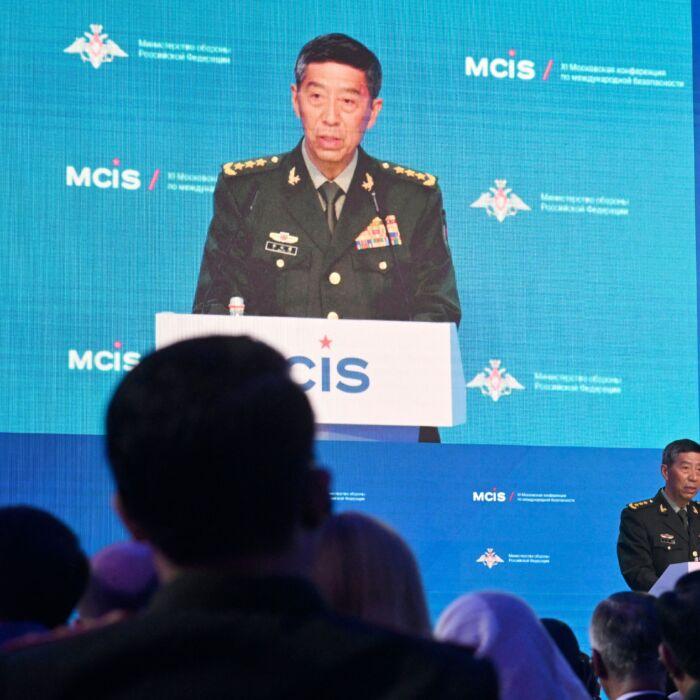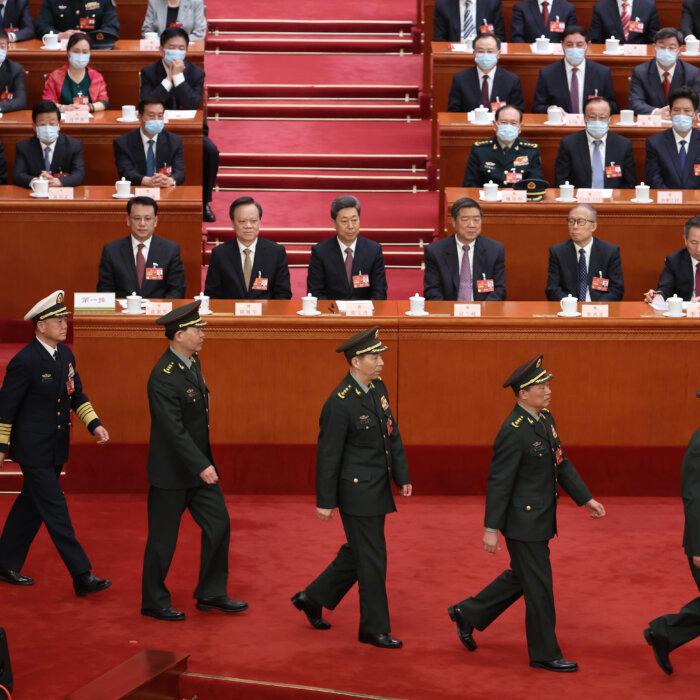“I was enlightened very late in life. I spent the most precious years of my life as a chess piece for the communist party,” Bai Liusu, a demobilized female soldier, shared her experience from a “little pink” to recognizing the lies of the communist regime.
Ms. Bai graduated from high school in 2005. Learning that one could be assigned to an official job after being demobilized; her family spent a lot of money sending her to the army.
“We had to find someone who had the resources. We couldn’t transfer money but had to pay cash… We spent over 200,000 yuan (about US$30,000),” she said.
“When we were in the training, the squad leader made us sit on the ground and asked us individually: How much did your family spend? How much did you spend? We all knew the answer very well.”
Ms. Bai was assigned to a communications unit in Beijing, the lead communications unit in the whole army, with good remuneration.
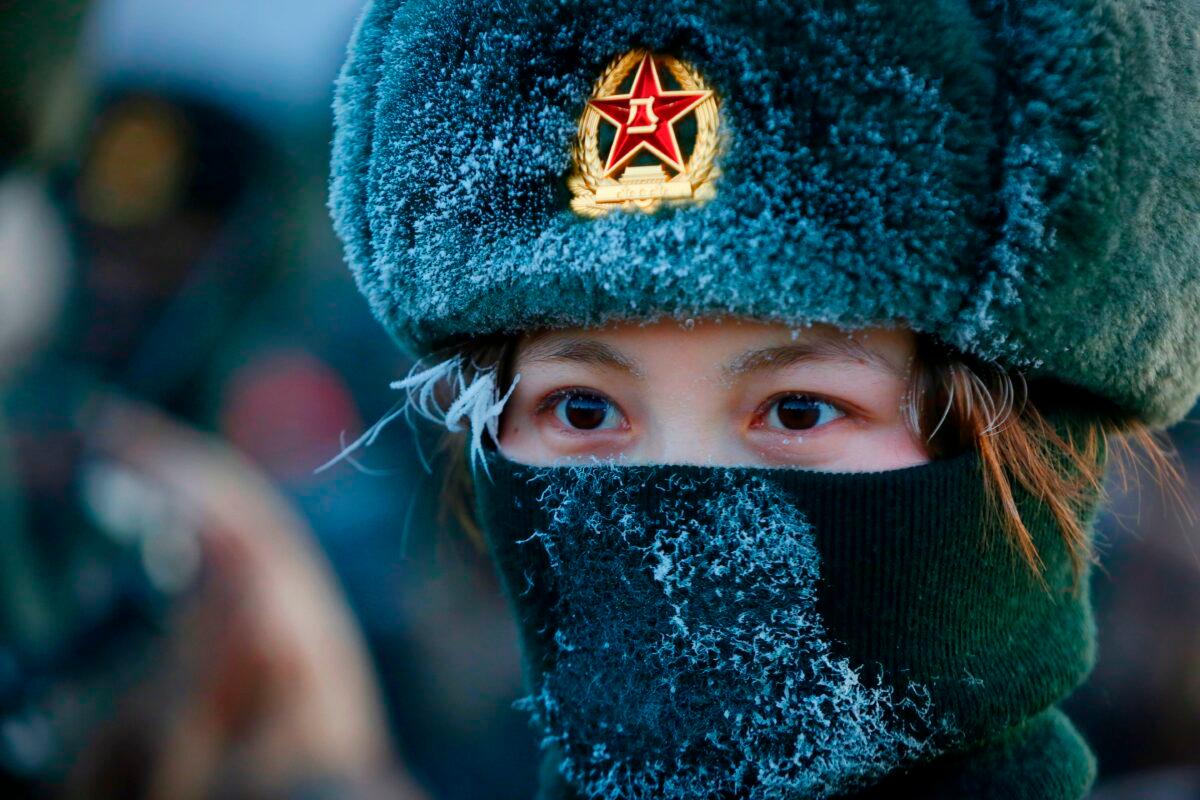
Forced to Strip Naked and the Demands for Promotion
The “long-distance call station” department specializes in transferring the calls of top people, which is highly confidential. Only after entering the army did Ms. Bai realize how corrupt it is.“All the new recruits were beaten up, and the squad leader made us strip naked… he even asked us for money, and we had to give it to him,” she recalled. “The female soldiers at the station were often dragged by their leaders to drink with them.”
There are two quotas for the promotion of cadres in the station every year. To be promoted, not only did one have to be good at the job and have a good family background, but he/she also had to pass the political check, said Ms. Bai.
In addition, “To be promoted, you have to either have a strong connection or be willing to be dissolute.”
Ms. Bai made up her mind to leave and look for a job after completing her two years. She didn’t want to pay that price to be promoted.
Supervising and Corporeal Punishment
“In the military, you’re not allowed to walk alone. Two or three people walk together to supervise each other. They bully the new recruits and give them demeaning jobs; I had to clean all the rooms on one level by myself.” Ms. Bai, who originally wanted to protect her country, never imagined the army would be so corrupt.“How far did they go in bullying the new recruits? The squad leader would kick anyone who he didn’t like, kicking them right in their stomach,” she said.
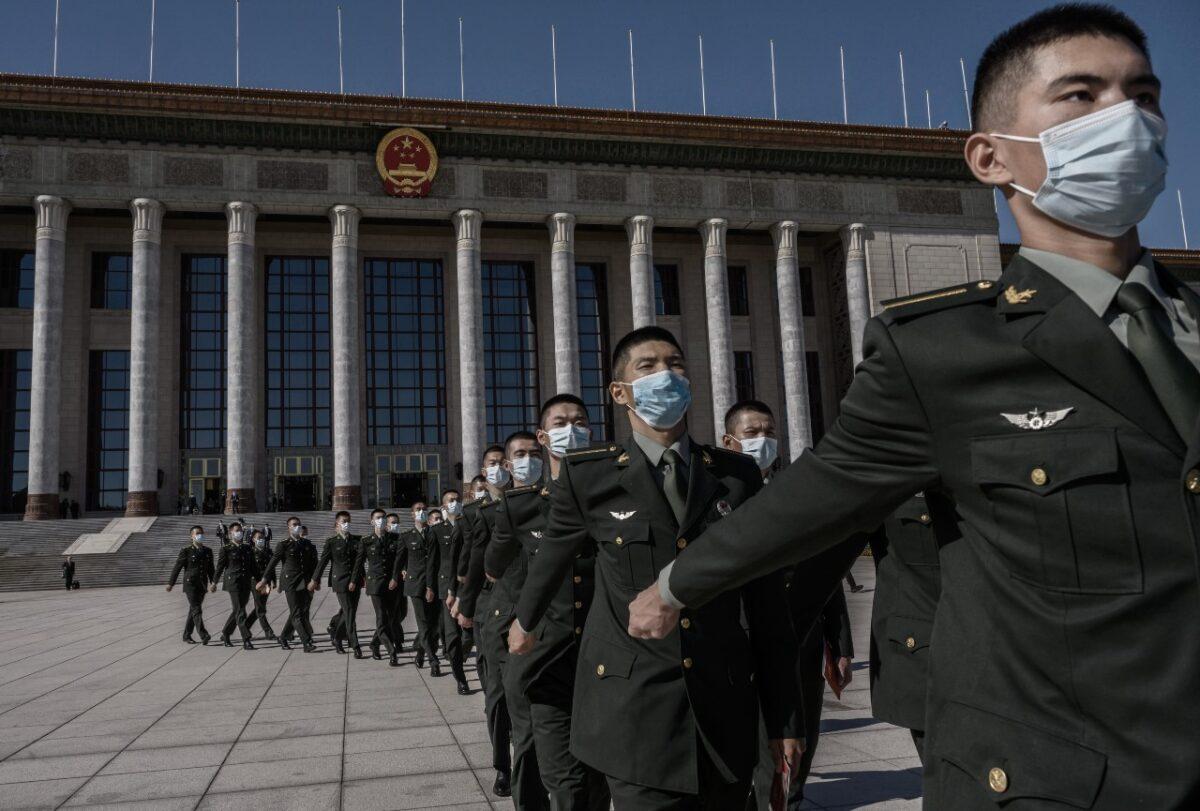
Once, she was changing the dressings of a wounded soldier from Shanxi Province, whose femur was damaged. The soldier quietly told her that his injuries were due to his being beaten. Ms. Bai cried, worrying about what would happen to the young man. Soon after, someone told her the medic wouldn’t let her attend to the soldier anymore. She slowly realized that it was a kind of training.
Machine of the State: Successful Brainwashing
The CCP’s brainwashing in the army was very successful for Ms. Bai.“We became indignant at the so-called foreign powers, the United States, Canada, and Taiwan,” she said.
At the time, Chen Shui-bian, a supporter of Taiwan’s independence, was running for president in Taiwan, an island the CCP has long viewed as a renegade province that needs to be united with the mainland.
“Liang Guanglie, the CCP’s Minister of National Defense at the time, stayed at our regiment for almost two months. We were preparing for war should Chen Shui-bian come to power and hold a referendum [on Taiwan joining the United Nations].”
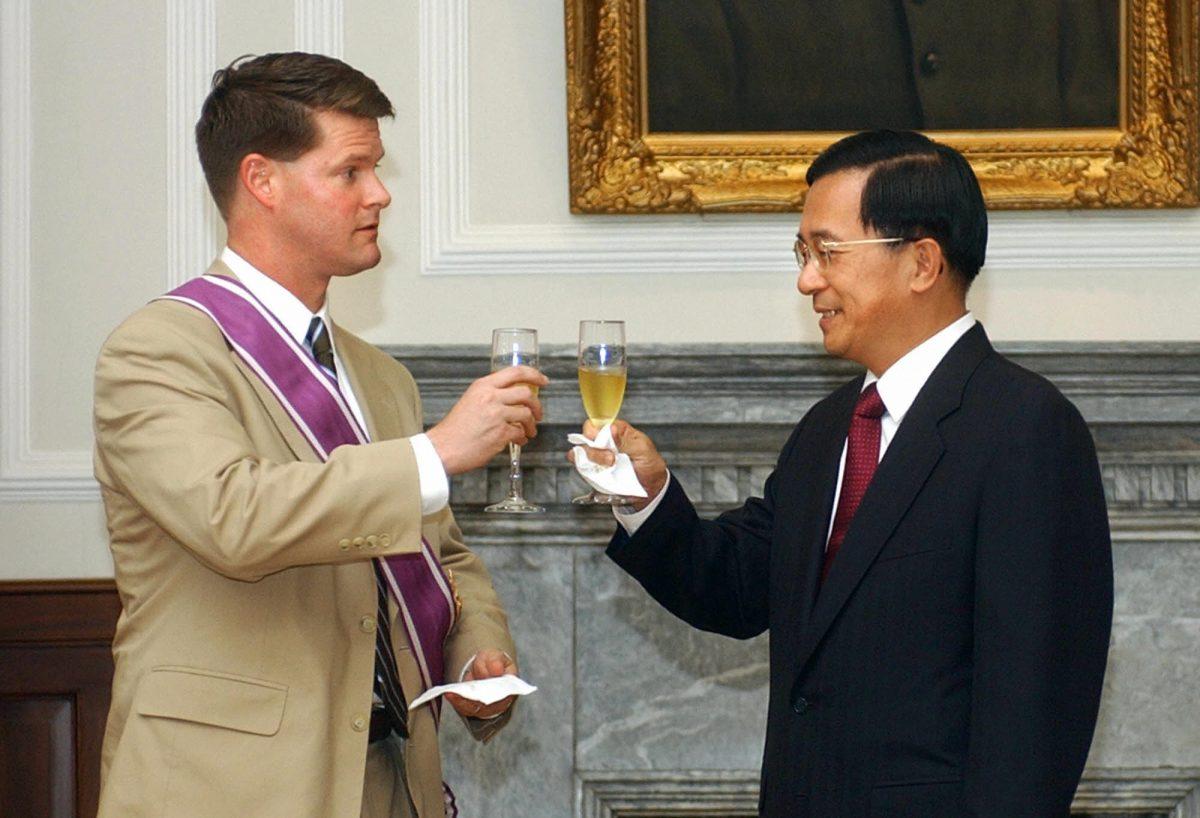
“We studied all day long in the army. Every week, we had to learn about psychological warfare, anti-infiltration, and anti-spying tactics.”
Crying All Night After Learning The Truth
In 2007, Ms. Bai retired from the military and began a normal life. She worked, got married, and had a child. Her husband, who reads and thinks deeply, wanted their baby to be born in a free place.When she was 34 weeks pregnant, Ms. Bai flew to Las Vegas so her baby could be born in the United States. The mother-to-be found that the United States was not as she had been told. There were no gunmen on the streets, the doctors and nurses in the hospitals were courteous, there were no arbitrary charges, and the people there were all very friendly.
Bored with awaiting delivery, she watched videos at home. Those about the Tiananmen Square Massacre in 1989 hit her very hard.
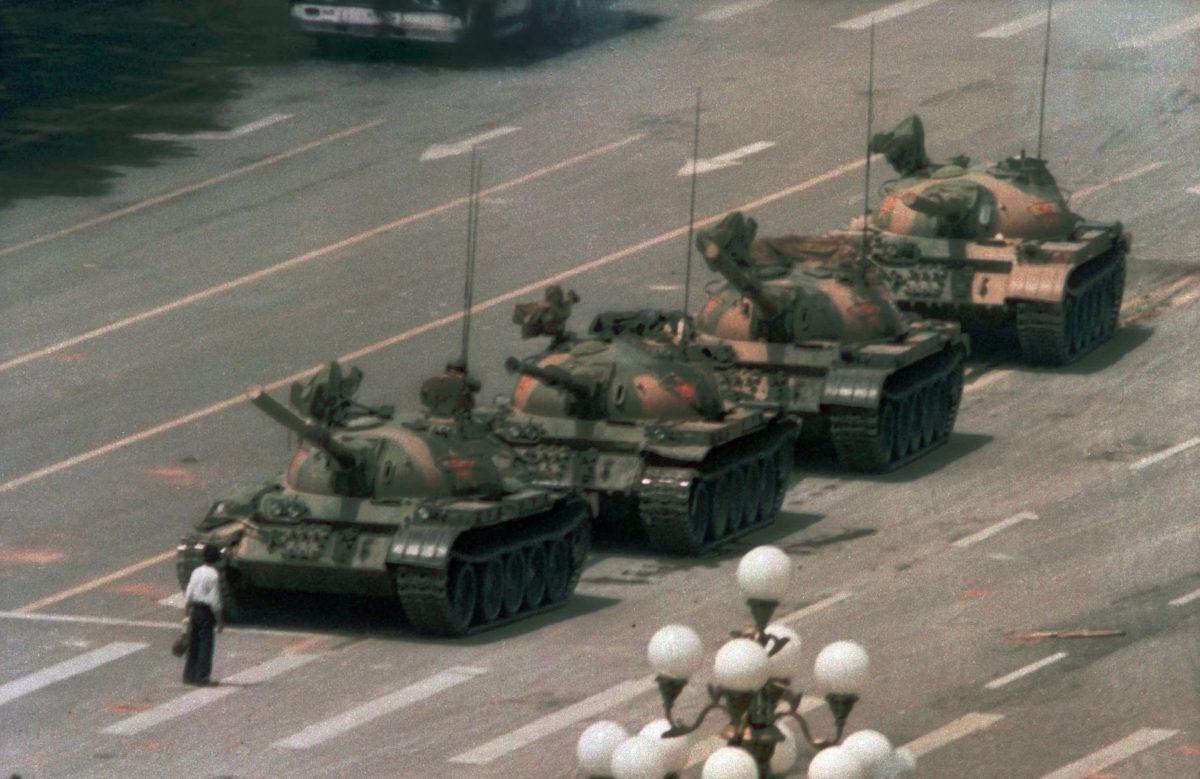
“And those about forced organ harvesting from Falun Gong [practitioners], which I had no idea about back in China. When I went to Hong Kong, people stuffed me with information about Falun Gong, but I didn’t believe it. When I saw videos detailing [the situation], it turned me upside down. I couldn’t sleep at night and cried there.”
“I felt that I had been completely deceived. I was angry, sad, and desperate, but I didn’t know how to fight back. It was really painful,” she said.
Worrying about Ms. Bai, her landlord drove her around, cooked for her, and took her to church.
Supporting Hong Kong Pro-Democracy Movements
In 2019, the anti-extradition movement broke out in Hong Kong. Despite worrying that the CCP would open fire, Ms. Bai still joined the flash protests with her child.“The authorities announced that he died due to an accidental fall. We were all outraged, and many people participated in the march in protest,” she said.
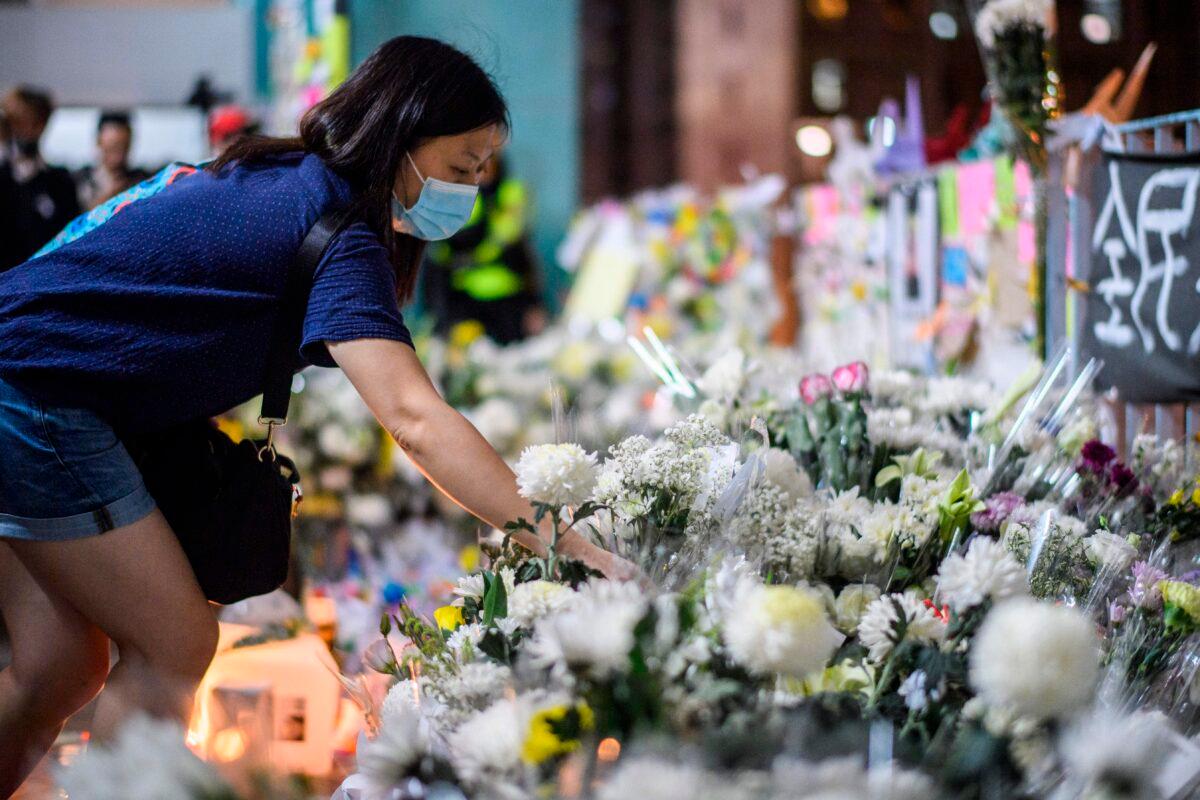
At the end of 2019, Ms. Bai was pregnant again and was told to have an abortion by her neighborhood committee.
At the time, China had not loosened its three-child policy. Ms. Bai and her husband would face fines or dismissal from their work if they were to keep the child.
‘Truth Can Bring Changes’
Ms. Bai, who often watches and reads NTD TV and The Epoch Times, contributed her changes to movies about Falun Gong and the Tiananmen Square Massacre.Ms. Bai believes that the CCP’s persecution of Falun Gong exceeds that of political prisoners.
“In any dictatorship, repression of political prisoners come first, but it’s not the case in China, where the CCP’s persecution of Falun Gong comes first,” she said.
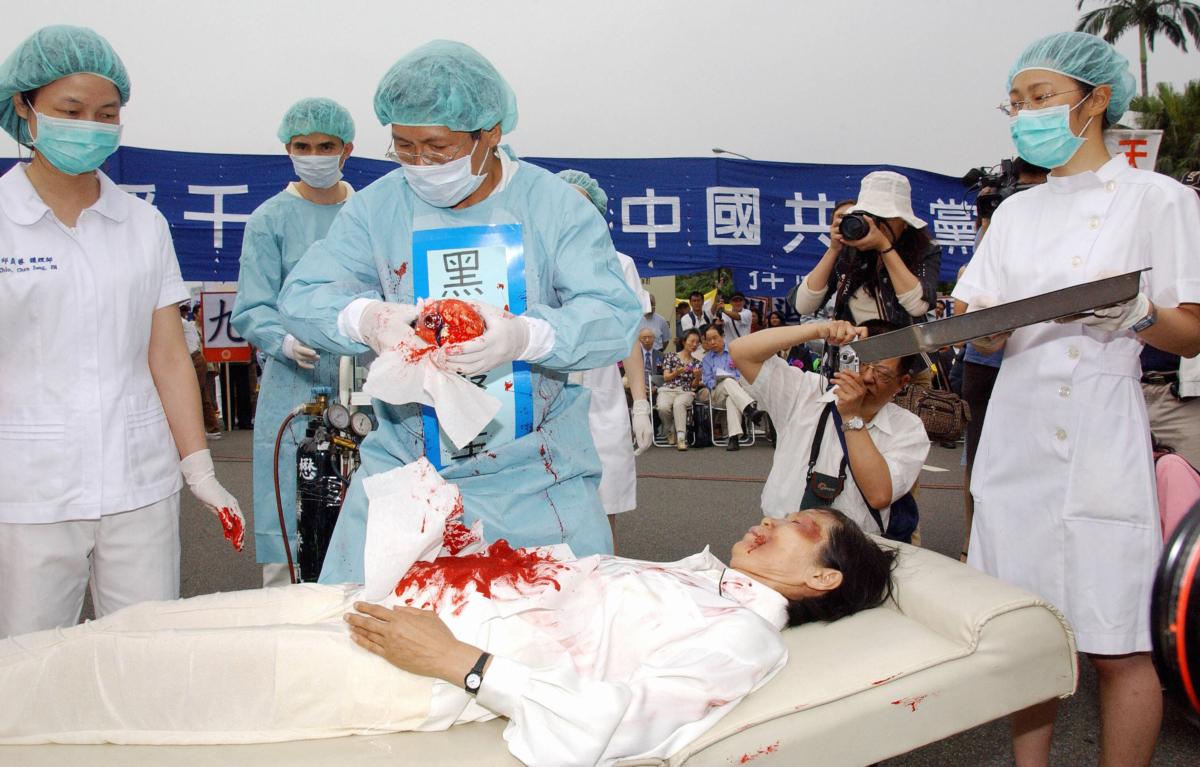
“It’s too hard for us to be Chinese. Are we asking too much? We are just asking for the dignity of human beings and the rights we are born with. Yet why is it so difficult for us Chinese?” asked Ms. Bai, who hopes that the next generation will not have to endure the same suffering.
“I became enlightened very late in life. I spent the most precious and youthful years of my life as a Maoist and a little pink.”
“My opposition to the Communist Party comes from the bottom of my heart. I feel that all the suffering I have endured comes from the Communist Party, this authoritarian system,” she said.
“The civilization of a society depends on the defense of individual rights. Only when individual rights are defended can a society be civilized.”

